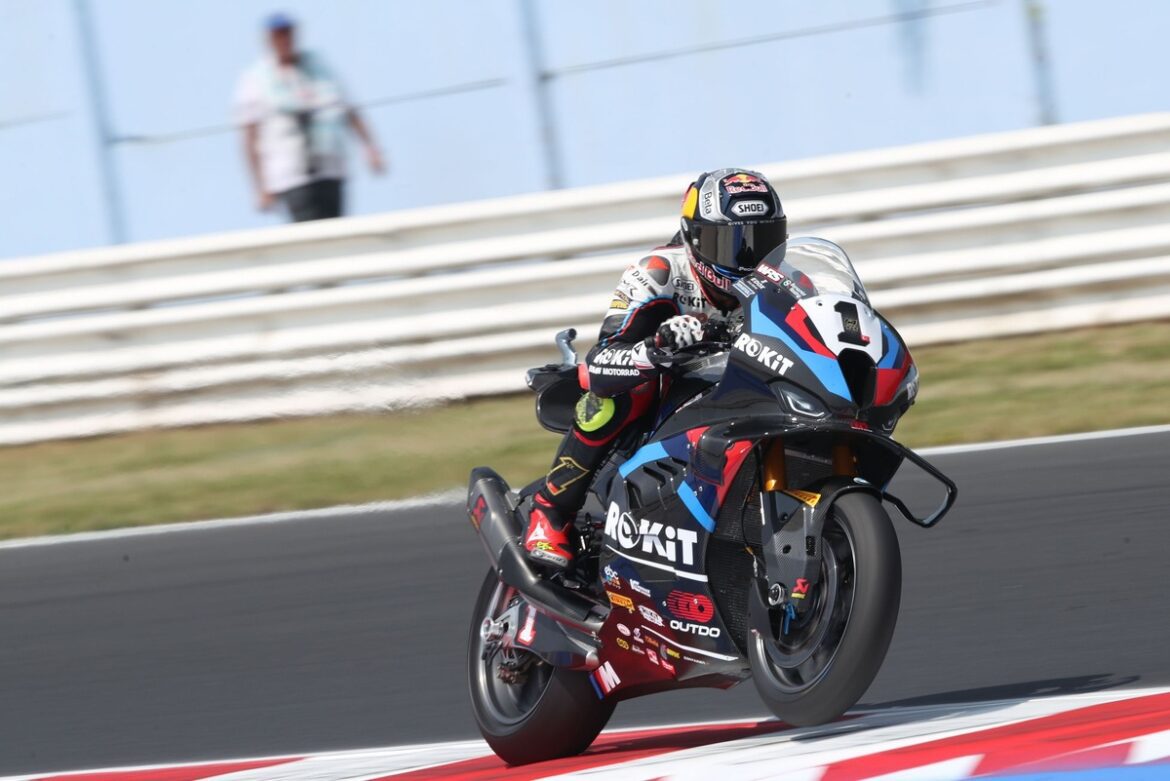BMW’s Potential Entry into MotoGP: A Comprehensive Overview
The landscape of MotoGP has been shaped by various manufacturers over the years, yet the absence of BMW has remained a notable gap. With significant developments in the world of motorcycle racing, particularly in the Superbike segment, the discussion surrounding BMW’s potential entry into MotoGP has gained momentum. This analysis delves into BMW’s historical context, recent developments, and future prospects regarding its participation in MotoGP.
The Historical Context of BMW in MotoGP
BMW’s flirtation with MotoGP dates back to the inception of the series in 2002, coinciding with the introduction of 990cc prototype bikes. At that time, the German manufacturer explored the possibility of entering the series but ultimately did not advance beyond the conceptual phase, which included creating a life-sized mock-up of a racing bike. This initial attempt set the tone for BMW’s sporadic interest in MotoGP over the years.
Fast forward to 2022, when Suzuki’s unexpected exit from the MotoGP circuit reignited discussions about BMW’s potential involvement. Various figures within the MotoGP paddock sought to persuade BMW to acquire Suzuki’s racing structure, but these efforts were thwarted by Dorna, the series’ governing body. The inability to capitalize on this opportunity left many wondering if BMW would ever make a serious commitment to MotoGP.
Recent Developments and Strategic Maneuvers
In early 2023, BMW took another step towards entering MotoGP by discreetly attempting to acquire KTM’s racing division. However, this plan did not come to fruition, as the parent company, Bajaj, allowed KTM to continue its racing endeavors. This setback prompted speculation about BMW’s intentions and whether they had abandoned their MotoGP aspirations altogether.
The situation became more complex with Toprak Razgatlioglu’s decision to join Yamaha for the upcoming season. Razgatlioglu was seen as a pivotal figure in BMW’s potential MotoGP strategy, and his departure from BMW’s WorldSBK team raised further questions about the company’s future plans in the premier motorcycle racing series.
CEO Insights: A Window of Opportunity?
Despite these challenges, Markus Flasch, the CEO of BMW Motorrad, provided a glimmer of hope during an interview with Australian Motor Cycle News. When questioned about the prospect of entering MotoGP in conjunction with the new regulations scheduled for 2027, Flasch stated, “We haven’t made a final decision yet.” This response indicated that BMW is still considering its options regarding participation in MotoGP.
Flasch acknowledged that discussions regarding MotoGP have been ongoing at BMW, emphasizing that no definitive conclusion has been reached. This openness to possibilities suggests that while immediate plans may be on hold, the door remains ajar for future developments.
The 2027 Regulations: A Clean Slate for New Entrants
The introduction of new regulations in 2027 presents a unique opportunity for manufacturers like BMW to enter MotoGP. Key changes include the shift to 850cc engines, a reduction in aerodynamics, the elimination of ride-height devices, and a new tire supplier. These alterations create a more level playing field, making it an attractive prospect for new entrants to establish themselves in the series.
However, Flasch candidly admitted that BMW has yet to initiate any technical development for a MotoGP bike. He emphasized the importance of making a strategic decision before outlining the technical direction the company would take. This acknowledgment of the need for careful planning highlights BMW’s cautious approach to entering a highly competitive arena like MotoGP.
The Challenges of Entering MotoGP
One significant obstacle facing BMW in its pursuit of MotoGP participation is the current structure of the grid. Following Suzuki’s departure, Dorna has capped the MotoGP grid at 22 bikes, which translates to 11 teams, including five factory teams and six satellite teams. Each manufacturer has a partner team, with Ducati notably having two.
The CEO of Dorna, Carmelo Ezpeleta, has made it clear that if BMW decides to join MotoGP, it would need to do so in collaboration with an existing private team. This model mirrors how Aprilia initially entered the series by partnering with Gresini in 2015, eventually securing its own spots on the grid in 2022.
Given this structure, BMW’s path to MotoGP could involve the potential acquisition of a team. Recent discussions have surfaced regarding the sale of Herve Poncharal’s Tech3 team to an investment group led by Guenther Steiner. If successful, this sale could pave the way for BMW to enter MotoGP ahead of the upcoming rule changes, although the timeline appears to be challenging.
The Future Outlook for BMW Motorrad in MotoGP
As of now, the future of BMW Motorrad in MotoGP remains uncertain. The company is meticulously weighing its strategic options, and while the allure of MotoGP is palpable, the complexities of the current grid and the need for a well-defined plan cannot be overlooked.
Flasch’s comments about the lack of viability for a 2027 entry serve as a reminder of the challenges that lie ahead. BMW is not only considering the technical aspects of developing a competitive MotoGP bike but also the broader implications of entering a series with such a rich history and intense rivalry.
In the meantime, BMW continues to focus on its existing motorsport strategies. The company has been performing well in WorldSBK, a series that is primarily European in nature, and it remains committed to its success in that arena. The balance between nurturing its current successes and exploring new opportunities will be crucial for BMW in the coming years.
Conclusion
The prospect of BMW entering MotoGP is an exciting topic that captures the imagination of motorsport enthusiasts. With a rich history and a commitment to innovation, BMW could potentially bring a new dynamic to the series. However, the challenges and complexities of entering this premier racing competition require careful consideration and strategic planning.
As we look ahead, the motorsport community will be watching closely for any developments regarding BMW’s intentions in MotoGP. Whether the company ultimately decides to enter the fray or continue focusing on its successful endeavors in WorldSBK, the future of BMW in motorcycle racing remains a captivating narrative that is far from over.
